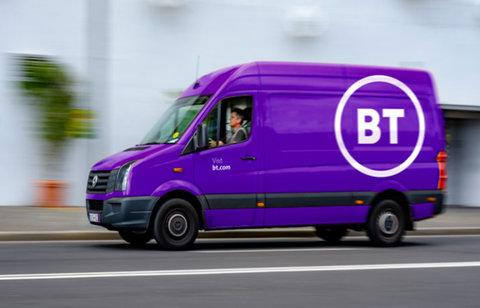
More than 40,000 workers at telecommunications business BT have walked out today in the first of two planned strikes in a row over pay.
Engineers and call centre staff, who are members of the Communication Workers Union (CWU), voted in favour of industrial action after BT previously offered a £1,500 per year pay rise. The union stated that this was a real-terms pay cut, while Philip Jansen, chief executive of BT, reportedly received a £3.5 million salary - a 32% increase from last year.
Picket lines were set up across the country from 7am, with a second strike planned for Monday.
According to BT, it will work to minimise any disruption and keep customers connected.
A BT Group spokesperson said: “At the start of this year, we were in exhaustive discussions with the CWU that lasted for two months, trying hard to reach an agreement on pay. When it became clear that we were not going to reach an accord, we took the decision to go ahead with awarding our team member and frontline colleagues the highest pay award in more than 20 years, effective 1 April.
“We have confirmed to the CWU that we won’t be re-opening the 2022 pay review, having already made the best award we could. We’re balancing the complex and competing demands of our stakeholders and that includes making once-in-a-generation investments to upgrade the country’s broadband and mobile networks, vital for the UK economy and for BT Group’s future, including our people.
Dave Ward, general secretary of CWU, said: “Announcing hundreds of millions of pounds in profit on the eve of the first national strike since 1987 smacks of arrogance and complete contempt for frontline workers.
"BT workers have hundreds of picket lines arranged across the UK and will support the CWU in delivering mass strike action. Our members kept the country connected during the pandemic. They deserve a proper pay rise, and that’s what they’re going to get.”
















